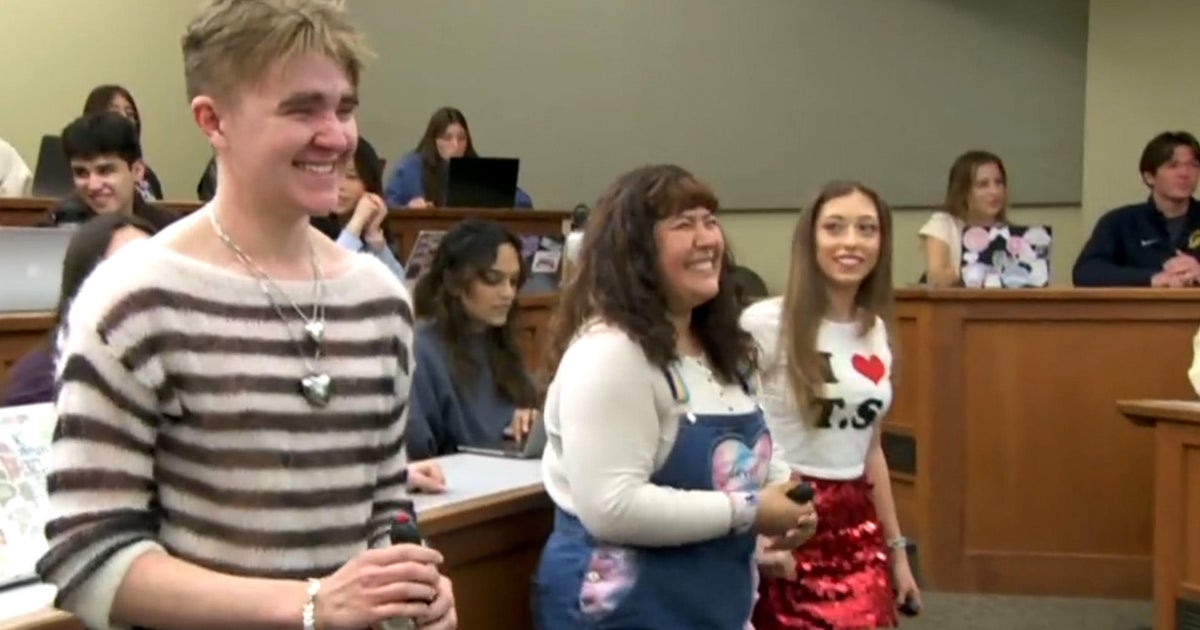Transcript: Scott Gottlieb discusses coronavirus on "Face the Nation," June 28, 2020
The following is a transcript of an interview with former FDA Commissioner Scott Gottlieb by CBS News' John Dickerson that aired Sunday, June 28, 2020, on "Face the Nation."
JOHN DICKERSON: Welcome back to FACE THE NATION. We want to go now to someone who has become a weekly guest on this broadcast, Former FDA commissioner Dr. Scott Gottlieb. He's in Westport, Connecticut. Good morning.
DR. SCOTT GOTTLIEB: Good morning.
JOHN DICKERSON: Dr. Gottlieb, I want to start with just your basic assessment. What is happening right now with this pandemic?
DR. GOTTLIEB: Well, these are major epidemics that are underway- underway in the South and the Southeast right now. You look at Texas with almost 6,000 cases, California with almost 6,000 cases. Georgia is getting hot with 2,000 cases. Florida with almost 10,000 cases right now. And Texas with about 5,500 people hospitalized. This is community spread that's been underway for some time. It's going to be hard to extinguish. We're gonna have many weeks ahead of us of continued growth in these cases, at least two or three weeks. Even if we take aggressive actions right now, which across the board we're not doing. And I know a lot of the discussion right now is that these cases are clustered in younger people. So deaths are actually coming down, but that's not likely to stay that way. This spread is likely to seep into more vulnerable communities and we're likely to see total daily deaths start to go back up again.
JOHN DICKERSON: So your point is this can't be changed or turned off with a switch that while we're- we're seeing big numbers, we should expect them for a while and more bad news?
DR. GOTTLIEB: Well, look at New York. New York implemented the stay-at-home order on March 20th. It was a Friday. It went into effect on Sunday. They peaked in terms of the number of daily cases that they were reporting on April 7th. So almost three weeks after they implemented a stay-at-home order, the cases continued to build and then they started to slowly decline. We're implementing measures in these states. The governors have taken action, but the action is much weaker than a stay-at-home order. And so even if it does have some impact on the continued spread, it's going to be a marginal impact and it's going to take more time to flow through. So I think that these states have some difficult weeks ahead. And you look at states like Florida, which might be in the worst shape right now. It looks like they may be tipping over into exponential growth. And so they're going to see perhaps rapid acceleration in the number of cases. So it's a difficult situation right now. I think over the next week we're going to know just how pervasive the spread is. But it looks pretty widespread right now.
JOHN DICKERSON: In your judgment, was the rush to reopen too fast?
DR. GOTTLIEB: Well, I think two things happened. One, we reopened against the backdrop of a lot of spread. And so it was only- only going to go in one direction. There was already a lot of infection around to continue building new cases. And these epidemics take time to build. And the other thing was the speed of the opening in some of these states. They didn't really pause in between step- steps of their reopening for a sufficient amount of time to see if it was having an untoward effect. And so as they reopened parts of their economies, they should have taken two week pauses in between. That's what states like Maryland, Massachusetts, New York, New Jersey, Connecticut, Michigan did and did it successfully so that they could measure the impact of their actions.
JOHN DICKERSON: What do you make, Dr. Gottlieb, about the European Union's choice or decision not to allow U.S. travelers because the outbreak has not been sufficiently contained in America?
DR. GOTTLIEB: Well, look, I think there was some inevitability to that. We still have a lot of spread across this country. If you think that we're only diagnosing one in five to one in 10 cases, the CDC said about one in 10 cases are being diagnosed. I think it's probably a little bit better than that. But you look at the 40,000 infections that we have, and it really probably represents a quarter of a million infections on a daily basis. That's a lot of infection around the United States. And so for countries that really crushed their epidemics, I think there was an inevitability that they were going to limit travel from U.S. travelers into those countries. I think the other thing that we're going to see probably start to materialize on a wider scale are restrictions within the United States. I think states that have crushed their epidemic are going to start to put up more stringent restrictions on travel. You already saw the beginning of that with New Jersey, Connecticut, and New York coming together. But there's a lot more that states can do, including screenings at airports for passengers flowing through certain parts of the country that might limit travel within the United States.
JOHN DICKERSON: You mentioned that you don't think closing bars and some of the limited pause measures that some of these states that have reopened have put in place now that we're seeing these spikes. What would be effective that could be implemented?
DR. GOTTLIEB: Well, the easiest thing we could do is universal masking, and I don't understand why we can't mandate it in states that have major epidemics underway. And there's a number that do right now. We mandate that people have to wear seat belts in cars, but we're not saying that they have to wear a mask in the setting of an epidemic. If a large percentage of the population, not everyone, but a large percentage of the population wore masks on a regular basis, reasonable quality masks, that alone could reverse the epidemic, could get the- the transfer rate, the R, if you will, below one. So it's the simplest intervention that we can take that could have an impact on the spread right now
JOHN DICKERSON: In terms of getting people to wear masks, what have we learned or not learned about the- the way in which we all do or don't collectively take action to do the things that are necessary to slow the spread and- and beat back this thing?
DR. GOTTLIEB: Well, look, we have a hard six months ahead of us. We're gonna get through this. This is a brief moment in our long history. We need to focus on preserving life and we need to focus on maintaining the things that are most important to us, keeping our businesses open, sending our children back to school in the fall, preserving the health care system, protecting the vulnerable. And so we all collectively need to come together to do what we can to limit spread. And that means reducing some of our daily interactions, wearing masks, being more vigilant. After about six, seven months we're going to get to a therapeutic or vaccine that's going to help us more fully vanquish this COVID threat. But it's really an early 2021 event. So we need to just get through 2020. I think we need to come together and think about what we can do as a nation to reduce our collective risk and not make this so, so cantankerous. The idea of universal masking wearing a mask when you go out, there's a lot of things we do that are inconveniences, but we do it to protect ourselves and protect our fellow citizens.
JOHN DICKERSON: All right. Dr. Scott Gottlieb, thanks again for being with us. And we'll be right back.



